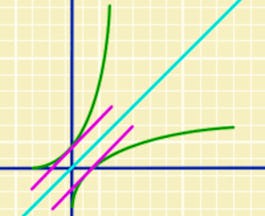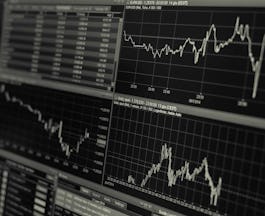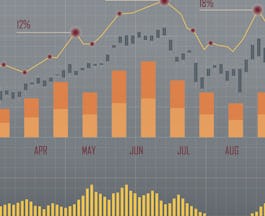Filter by
The language used throughout the course, in both instruction and assessments.
456 results for "optimization"
 Status: Free
Status: FreeThe University of Sydney
Skills you'll gain: Algebra, Calculus, Mathematical Theory & Analysis, Mathematics, Problem Solving, Computational Logic, Critical Thinking, Differential Equations, Plot (Graphics), Linear Algebra
 Status: Free
Status: FreeThe University of Melbourne

Starweaver

University of Colorado Boulder
Skills you'll gain: Algorithms, Computer Programming, Problem Solving, Theoretical Computer Science, Computational Logic, Computational Thinking, Mathematical Theory & Analysis, Mathematics, Applied Mathematics, Data Structures, Python Programming

Coursera Project Network

Arizona State University
Skills you'll gain: Probability & Statistics, Experiment, Statistical Analysis, General Statistics, Statistical Tests, Data Analysis, Research and Design, Regression, Plot (Graphics), Basic Descriptive Statistics, Statistical Visualization
 Status: Free
Status: FreeThe University of Melbourne

Columbia University
Skills you'll gain: Finance, Leadership and Management, Investment Management, Probability & Statistics, Risk Management

Coursera Project Network
Skills you'll gain: Marketing, Search Engine Optimization, Web Design, Web Development
 Status: Free
Status: FreeÉcole normale supérieure
Skills you'll gain: Algorithms
 Status: Free
Status: FreeNorthwestern University
Skills you'll gain: Computer Graphic Techniques, Computer Vision, Visualization (Computer Graphics), Data Visualization, Matlab

Johns Hopkins University
Skills you'll gain: Mathematics, Algebra, Data Analysis
Searches related to optimization
In summary, here are 10 of our most popular optimization courses
- Introduction to Calculus: The University of Sydney
- Solving Algorithms for Discrete Optimization: The University of Melbourne
- Business Process Modelling: Starweaver
- Dynamic Programming, Greedy Algorithms: University of Colorado Boulder
- Portfolio Optimization using Markowitz Model: Coursera Project Network
- Design of Experiments: Arizona State University
- Advanced Modeling for Discrete Optimization: The University of Melbourne
- Optimization Methods in Asset Management: Columbia University
- Increase SEO Traffic with WordPress: Coursera Project Network
- Approximation Algorithms Part I: École normale supérieure










